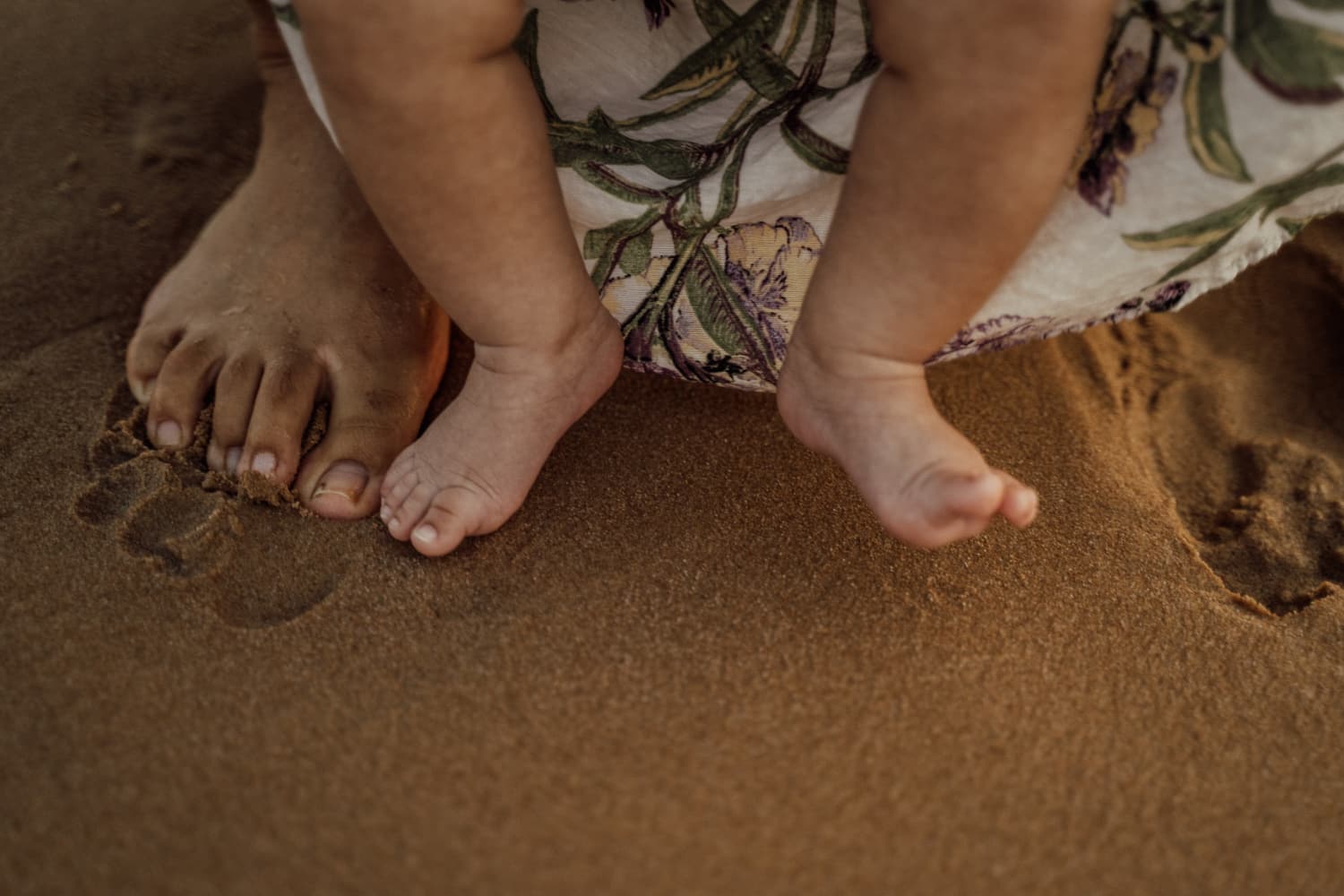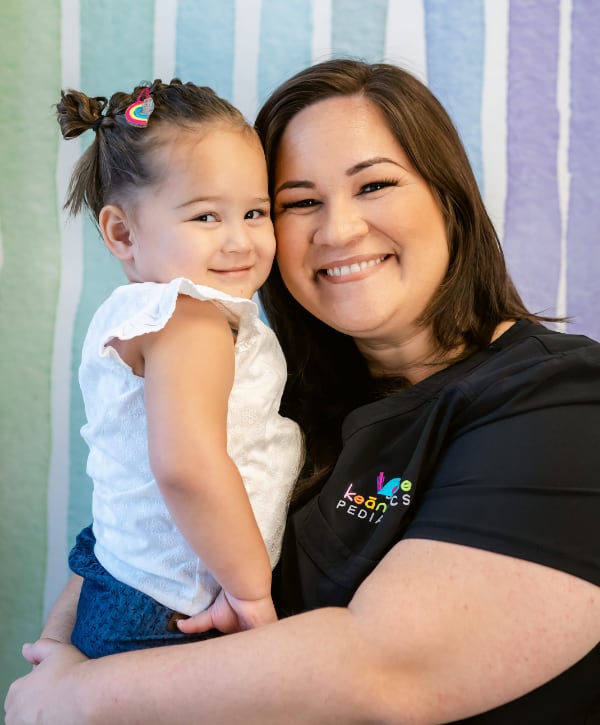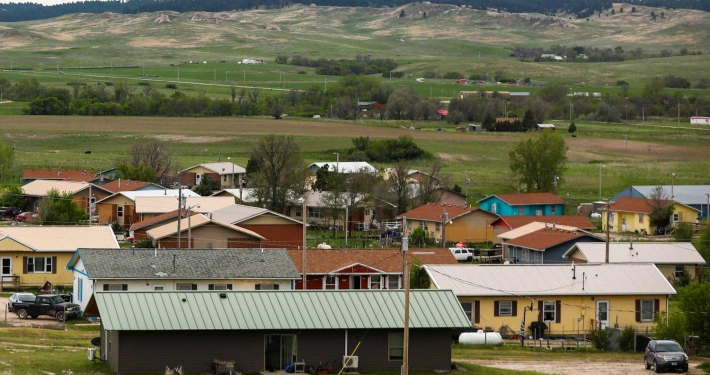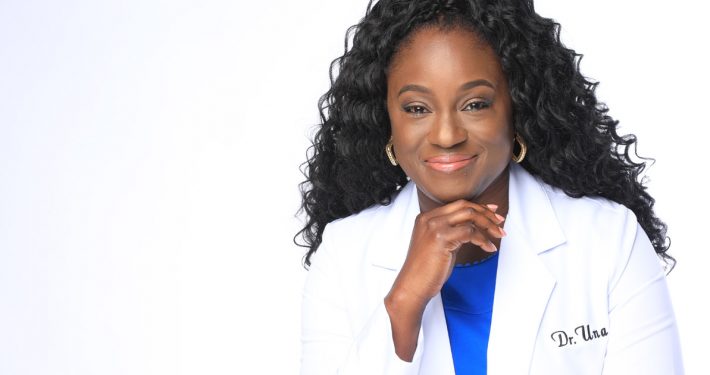Close Communities from Far Away: How Keānuenue Pediatrics Fights for the Underdog
Dr. Jasmine Waipa founded Keānuenue Pediatrics in Honolulu, Hawai`i, in October of 2020, with a focus on addressing the health disparities that affect Native Hawaiians.
The “Close Communities from Far Away” series features pediatricians working in a diversity of geographic locations, from Alaska to Hawaii and everywhere in between. Learn more about what they love about their communities and the opportunities and challenges they face.
When Dr. Jasmine Waipa founded Keānuenue Pediatrics in October of 2020, she knew she was breaking down barriers in her home state of Hawai’i.
“I’m proud to say that I’m a Native Hawaiian female physician, and the other two docs who are joining me are also Native Hawaiian female physicians,” she says. “We are fairly underrepresented in medicine, even though our people are disproportionately impacted in terms of health outcomes.”
The three pediatricians bring to their young practice a focus on combating the health disparities that affect Native Hawaiians. According to 2017 figures from the U.S. Office of Minority Health, Native Hawaiian/Pacific Islander adolescents are more than twice as likely to be obese as compared to non-Hispanic white adolescents. Diabetes is also more prevalent in this population: a 2018 report found that Native Hawaiians/Pacific Islanders were 2.5 times more likely to be diagnosed with diabetes as compared to the non-Hispanic white population. Dr. Waipa also mentions high rates of suicide as well as substance use and dependence.
“We as a group are passionate about those health disparities and how to improve them,” says Dr. Waipa. “We believe as pediatricians that we have this amazing advantage to start young, to even start in the prenatal period and [to] help support and educate families and be a resource for them.”
As the team continues to fine-tune business operations and bring patients in the door, they know that their presence in the community shows young Native Hawaiian patients that they can dream big and realize their goals.
“A big part of our job is to be a role model for our patients,” she says. “Children seeing that we’re Native Hawaiian and that you can be a doctor, you can be anything you want to be, that was very important for us. We have experiences that we can draw from that allow us to not only connect with our patients but also serve as advocates because we know and understand where they’re coming from.”
“A big part of our job is to be a role model for our patients. Children seeing that we’re Native Hawaiian and that you can be a doctor, you can be anything you want to be, that was definitely very important for us.”Dr. Jasmine Waipa
“We Want to Talk Story”
Dr. Waipa left her hometown of Kapahulu, Hawai`i, to attend college at Harvard University and medical school at Stanford University. From an early age, her parents instilled in her and her three siblings a drive and desire to learn. It was a given that they would leave the island for higher education.
“All four of us went to the mainland for college, as per my mom’s instructions,” she laughs.
At Harvard, she majored in sociology, a choice that has influenced her approach to medicine.
“I was passionate about pediatric obesity and Native Hawaiian health in general,” she says. “It was fascinating to me, all of the different social determinants of health and social and cultural constructs that can impact our health.”
When she found herself wavering between specialties at Stanford, a mentor named Dr. Oscar Salvatierra helped her find her way.
“He was really wonderful and very insightful,” she says. “He knew I was meant to be a pediatrician, apparently, but I didn’t, and I had to come to it myself.”
In deciding between pediatrics and geriatrics, she focused on how she could make the most impact as a change agent, which helped her to find her calling.
“The thing that unifies both of those specialties for me is that I realized that I like to fight for people who can’t fight for themselves, and so I wanted to be an advocate,” she says. “I wanted to fight for the underdog. Then when I really thought about it, I realized that I could potentially make a bigger difference in pediatrics, because of the more preventative aspects of it.”
After pediatric residency at Stanford’s Lucile Packard Children’s Hospital, she knew she would be headed back to Hawai`i. Her selection as a Native Hawaiian Health Scholar required her to serve in a high need community in her home state, in exchange for financial assistance for medical school. The federally-funded program aims to increase representation of Native Hawaiians in the healthcare workforce, as well as fill gaps for underserved areas. Scholarship or not, Dr. Waipa had always planned to practice medicine back home.
“As a scholar, I knew I had to, but I also thankfully wanted to because my family is here,” she says.
She worked for about five years at a group practice in Honolulu before setting out on her own to found Keānuenue Pediatrics. Although she admits the leap was scary, she had strong support from the team at PCC and fellow pediatrician Dr. Alyssa Honda, who has been with the practice since its inception.
“We really vibe in terms of our philosophy on patient care and the things that we’re passionate about,” says Dr. Waipa. “It was fortuitous that she was able and ready to join me.”
“We’ve been really lucky. I think that we’ve been growing organically by word of mouth. Even though there are a million people that live here, it’s very much a small town kind of feel.”Dr. Jasmine Waipa
“We’ve been really lucky. I think that we’ve been growing organically by word of mouth. Even though there are a million people that live here, it’s very much a small town kind of feel.”Dr. Jasmine Waipa
In the fall of 2021, the practice welcomed Dr. Courtney Taum as their third pediatrician. Their office, located in what is known as “town,” or downtown Honolulu, serves a high volume of Native Hawaiian patients and patients from underserved communities, which allows Dr. Waipa’s colleagues to fulfill their obligations as Native Hawaiian Scholars.
“Even though we’re a private practice, we have such a high representation of both Medicaid and Native Hawaiian patients that we qualify for [Drs. Taum and Honda] to work off their service, too,” says Dr. Waipa.
One goal as the practice continues to grow is to use technology to its fullest potential while not losing sight of the important personal connections with families.
“When I was envisioning the practice, I wanted it to be this dichotomy,” she says. “I wanted a very modern, tech-forward [focus], leveraging technology so that our patients could have resources and information. That was one piece of it. The other piece of it was maybe a little bit more old-fashioned. I wanted our patients to feel every time they walked into the office like they were going to visit their favorite auntie, that everybody was very warm and inviting. We know your name. We’re genuinely happy to see you and to catch up. In Hawai`i, we call it ‘talk story.’ So we want to talk story. We want to share what’s been going on since the last time we saw each other.”
With their practice growing, Dr. Waipa’s and Dr. Honda have been getting to know the diverse needs of the community. The several military bases in the area means that Keānuenue Pediatrics also serves families who come to Hawai`i with an exit date set.
“We understand going into it that they’re temporary, that we’ll get to see them for this three-year stretch and then they’ll have to leave us,” she says. “[It does] get hard because we get attached to our patients.”
Many local families live in multigenerational households, which is not only a function of culture and tradition, but also sometimes stems from a need to make ends meet.
“It’s really common for family members or extended family members to provide the childcare while parents are working,” she says. “The cost of living in Hawai`i is a bit outrageous, so it’s not uncommon for parents to have to work more than one job.”
Even though [at the publishing date of this article] the practice is not even one year old, and was founded in the midst of a global pandemic, Dr. Waipa is happy with how their patient volume continues to increase.
“We’ve been really lucky,” she says. “I think that we’ve been growing organically by word of mouth. Even though there are a million people that live here, it’s very much a small town kind of feel.”
Dr. Waipa is hopeful that as Dr. Taum gets established and builds her patient panel, she’ll be able to take a step back from the day-to-day activities and focus more on some of the long-term goals for the practice.
“The biggest challenge lately has been figuring out the balance between what we do day in and day out…with all of these much bigger, more meta issues that we also are passionate about,” she says.
Collaboration and Growth
Dr. Waipa is no stranger to politics; alongside Dr. Honda, she reaches out to elected leaders to lobby for the children in her care.
“We’re both very passionate about advocacy, and so we try to take things up to the state and policy level and advocate for kiddos in that regard wherever we see gaps,” she says.
One of the major unmet needs at present: mental health care, an issue that has only been exacerbated by the COVID-19 pandemic. She recently enrolled in a mini-fellowship that provides additional training for pediatricians in mental health.
“When there is a shortage of providers, I will at least be able to get things started, whether it be with medication or being able to monitor them a little bit more confidently,” she says.
Addressing pediatric obesity is also a long-term focus for Keānuenue Pediatrics. Exploring opportunities to teach children how to garden and cook may be one way to boost activity and outdoor time as well as promote healthy eating.
“Dr. Honda specifically is really passionate about nutrition, especially plant-based nutrition and connection with the land,” says Dr. Waipa. “I know that she’s trying to imagine ways to create a program or get funding to create a program that would help especially our Native Hawaiian kids.”
As the practice continues to establish itself in the community, collaboration with Native Hawaiian-owned companies could be one way forward to realize this and other goals.
“There are so many small business owners that are also committed to Native Hawaiian health and wellbeing that I think we could partner with to bring resources to our patients,” she says.
Expansion of the practice’s physical space is also a possibility in the not-too-distant future, allowing better workflow for the three pediatricians as well as room for additional services. Options may include a part-time psychologist or a mental health professional, a nutritionist or potentially a lactation consultant.
One more immediate goal is scaling up the online resources available to patients. With the COVID-19 pandemic still bearing down on the globe, Dr. Waipa sees the development of a web portal for patient education as a priority. The goal is to focus time in the office on the tasks that can only be accomplished in person, like shots and physical exams.
“[The pandemic] has forced us to be creative and resourceful,” she says. “We’re trying to imagine ways to be more efficient and put our patients at less risk if we can help it.”
A rich selection of digital resources would also help families stay connected to the practice in between office visits. Dr. Waipa envisions a video series related to developmental milestones, for example, or different pages devoted to common concerns for parents, like introducing solid food or helping a child deal with separation anxiety. Families could review this information ahead of a visit and come prepared with questions.
“That way, in the office, we can spend the limited time we have together on something that’s really important to the family,” she says.
Ultimately, Dr. Waipa hopes Keānuenue Pediatrics serves as home base for the families they serve, carrying on the tradition of “talk story” for generations to come.
“Our goal always is that this is a long-term relationship,” she says. “We see kiddos until they’re hopefully done with college, until they’re 21. We want it to be a longitudinal journey where we get to be with them every step of the way through all of the ups and downs and the milestones that they’re going to experience as a family.”
A resident of Burlington, VT, Erin Post has a BA degree in English from Hamilton College, and is a graduate of the writing program at the Salt Institute for Documentary Studies. She is currently working on her master’s in public health at the University of Vermont. In her spare time, she likes to bike, ski, hike, and generally enjoy the Green Mountains of Vermont.










